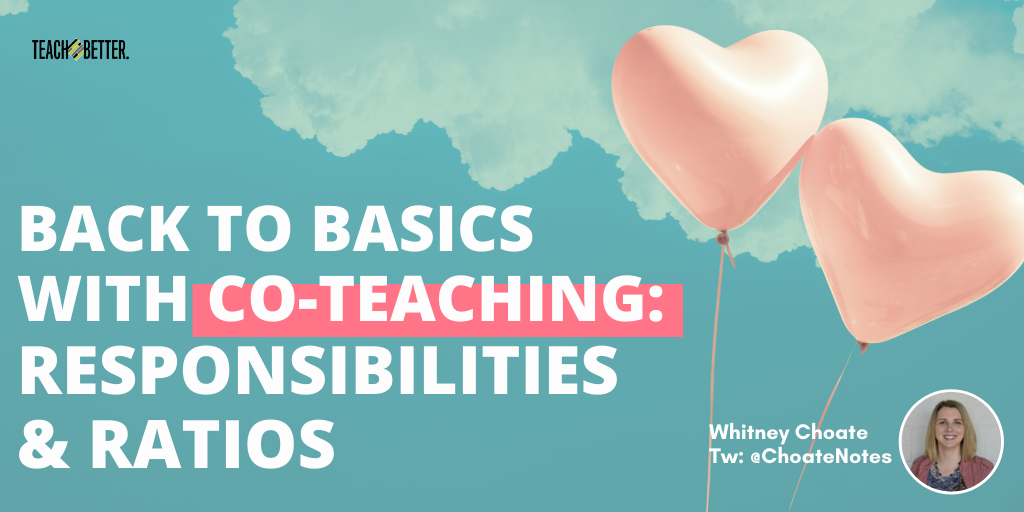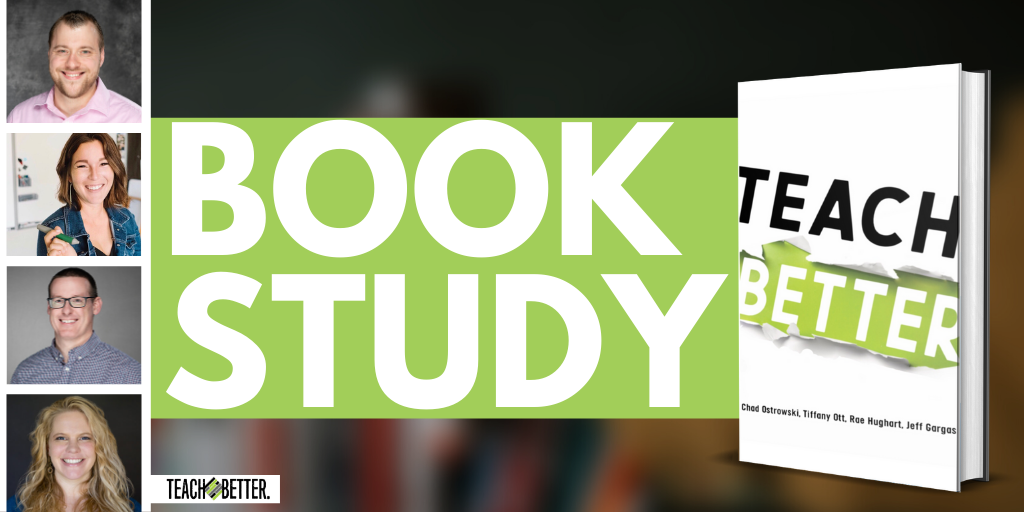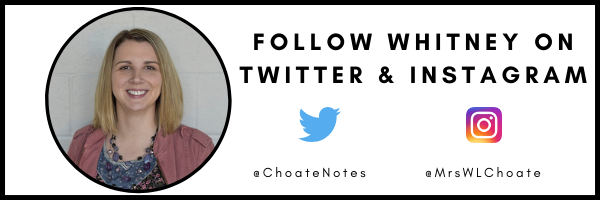TL;DR:
- Co-teaching allows for increased instructional intensity by having two certified teachers in one classroom.
- It is important that co-teachers share all responsibilities, and for both teachers to support all students in the classroom.
Co-teaching is a marriage. For better or worse, you both are stuck together through the good and the bad for the entire school year. This post will cover the fundamentals of co-teaching and give you strategies to help your co-teaching marriage be as strong and successful as possible because no one wants a relationship that ends negatively affects the kids.
Co-teaching Basics
Co-teaching is a service delivery option that allows for increased instructional intensity by having two certified teachers in one classroom sharing the instructional delivery. These teachers typically have different degrees or teaching backgrounds, as one is a special education teacher and one is a general education teacher.
Co-teaching is not a teacher and a paraprofessional or other adult; these individuals are valuable but are supportive rather than having similar licensure. By having two teachers in the classroom, students can benefit from these diverse educators and the increased accountability for the students.
Co-teaching is a marriage. For better or worse, you both are stuck together through the good and the bad for the entire school year. Click To TweetCo-Teaching Responsibilities
General education teachers: you will likely have to relinquish some control and share responsibilities with your special education co-teacher. Sometimes this can be hard, and that’s okay. Everything should be 50/50 in the classes you teach together including lesson planning, grading, and other duties.
Make sure your class sign or schedule has both teacher names listed. Make sure that it appears to the class that you each have ownership and responsibilities. My goal was always to blend in so well as a teacher that my students did not recognize that I was a special education teacher. When they asked what I taught, I would say “English and health” rather than “special education.”
As a special education co-teacher, it is important to be more than a glorified teacher’s assistant. Your responsibility is to be the learning expert while your general education co-teacher is the content expert. You are there to not just assist the students with IEPs, but all students in the classroom.
Make sure you get to know all the students and build relationships with them. Make sure that all students in the classroom cannot tell which students have IEPs and which do not.
Collaboration between both teachers is vital. If your school allows for common prep time, utilize that. If emails work best for the two of you, communicate that way. Maybe it’s a phone call on your commute home once a week. Find what works for you both and run with it. Make sure you are discussing all aspects of your shared classroom including content, behaviors, and everything in between.
[scroll down to keep reading]Co-Teaching Ratios and Class Sizes
There are many different resources and statistics that don’t give a hard and fast number for ratios of special education to general education teachers in a co-taught class. However, most experts agree that the number of special education students should be 30% or less; some say it should be no more than 5%.
Realistically, 25% is a good target depending on the ability levels of the special education students. If you have around 50% or more students who have IEPs in a class, then there could be a legality issue where that class could technically be considered a self-contained special education course. As many things do in education, staffing and student numbers all comes down to money. Some districts struggle with seeing the validity of having two teachers teaching 20-30 students; this decreases the least-restrictive environments offered to our students with special needs.
ABOUT WHITNEY CHOATE
Whitney Choate is currently in her ninth year as a secondary special education teacher and is also an instructional technology specialist at Cape Central High School in Cape Girardeau, Missouri. She earned her Bachelor’s degree in Learning and Behavioral Disorders and a Master’s degree in Autism. She has a passion for teaching and mentoring learners of all ages. Whitney is also the co-host of the Tough Talk with Teachers Podcast.




